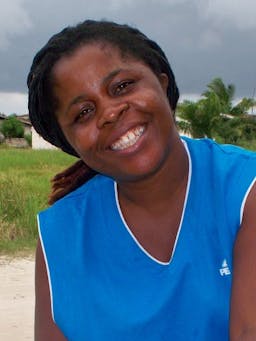SEA Campaign
Jan 21, 2015
Story
Hello Everyone,
I am sorry that I have been away for almost a year. I have been on my Maternaity leave and in Liberia been away from your office means being losing your access to internet. Good news! I just give birth to a set of boys (twin).
I know I've missed out on lots of good things but I'm glad to rejoin my family. Now to the story. In observance of the Intenational Womens Day, the Female Journalists of Liberia Launched a campaign on Sexual Exploitation of women in the media. The campaign is intended to promote reporting and response. It also aim at reducing the attack on women working in the media.
Sexual exploitation and Abuse (SEA) in Liberia is a very serious and pressing problem that demands greater policy attention. The economic and social vulnerability in the Liberian society widens the power difference between the large numbers of professional workers in the country and the issue of female been the direct beneficiaries of assistances makes them highly vulnerable to SEA.
The overall exposure of a majority of the population lends itself to the development of conditions in which SEA can flourish. As a result, the existence of SEA as a form of Gender Based Violence (GBV) has been recognized as a national problem and has been prioritized for action by the President. In 2008, the Republic of Liberia through its president declared zero tolerance to SEA and launched a Zero Tolerance Policy in Liberia but there are cultural/sexual norms that can undermine the effective implementation of a national ‘zero tolerance’ policy.
While there is little progress made, there is a need to document the experience of SEA in the Liberian media as a contribution to the global efforts in addressing SEA, though there has been no measure taken to prevent, report, and investigate SEA in the media, and to impose sanctions against the perpetrators.
The Media like in any other social context is the site of power relationships between managers, publishers, owners, editors, directors and producers. In particular, the power relationships between senior staff and junior staff also exist in the newsroom. Sometimes these relationships are articulated in abusive ways, in part reflecting broader controlling and classified models, as such, in many contexts the use of sexual harassment in newsrooms has been legitimized as a “natural” form of discipline and a way of establishing and maintaining hierarchical editor-reporter and owner-employee relationships. This provides a hint of the magnitude of the problem of sexual exploitation in the media. There are much more heavily untold stories of female working in the media.
In 2010, the Female Journalists Association of Liberia with Support from her partners conducted a survey on the stauts of women working in the media in Liberia. The survey discover the level of unfair treatment that media women experience at hand of the bosses. The outcome of the survey led to the hosting of a National Media Women Conference and the development of an Advancing Women in Media Strategy by Liberia Women Media Action Committee (LIWOMAC), International Research and Exchanges Board (IREX) Action Aid Liberia (AA-L) and Female Journalists Association of Liberia (FEJAL). At that conference mdia express their disappointment in their male bosses. Sexual harassment is one of the most serious problems faced by female media practitioners in Liberia. While the number of reported incidents does not seem alarming – 12% according to the study – participants at the National Conference on Advancing Women in the Media believe the incidents are more frequent and widespread. This hinders women’s advancement in the media and discourages many young women from entering and/or remaining in the profession. Participants also argued that sexual harassment is difficult to prove because of unequal power relations between the accused, usually a senior staff member, and the accuser or victim. At most media outlets and organizations, there are no policies to guard against sexual harassment.




